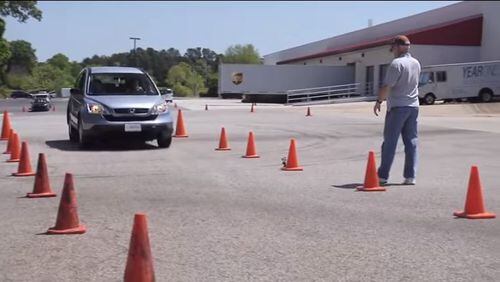The unofficial start of summer is here. While that moniker draws so many positive connotations, one grim reality is that Memorial Day and the 99 days following are the deadliest for U.S. teens on the roads. Data from AAA one year ago shows a 16 percent increase in teen driving deaths during this stretch, in comparison to the other 265 days of the year.
Reasons for this dire increase include, simply, more teens are on the roads more times of the day. And with even less commitments to school during the summer, teens can stay out later, party more and put themselves in a more compromised, distracted state behind the wheel. Summer time is carefree - driving should not be.
Woodrow Gaines runs a teen driver training organization called Fear This Inc., with a driving class called Teen Vehicle Operations Course. Not surprisingly, Gaines is a champion for safe teen driving and the recent deadly day for six teens on metro Atlanta roads horrified him, as it did many others. On April 24, a horrible crash in south Fulton County claimed four teens’ lives and injured a fifth one in the same vehicle.
“There were five students in the vehicle. I’m going to say that that was a distraction, where the driver’s attention was focused on what was going on inside the vehicle, instead of outside the vehicle,” Gaines says, echoing a sentiment repeated for years in driving courses about the increased distractions having multiple teens in cars brings. Georgia driving laws for early teen licensees limit how many passengers teens can carry for that very reason.
That same fateful Monday afternoon, two Cobb County teen brothers lost their lives when their car drove under a school bus in Roswell. Even though police found the bus driver at fault, Gaines believes the teen driver could have helped prevent the wreck.
“A contributing factor was that he was speeding and not focused enough on his driving,” Gaines says.
Any fault found with mistakes these drivers make doesn’t lessen the grief those close to them have or how much sympathy we should show. But we should also learn through these tragedies.
“These kids are put into situations that they have never been trained to handle,” Gaines says. “If you look at other countries, they put more emphasis on road safety than we do.”
He continues, “I hope that one day the teen driving issue is raised to the same society concern as animal rights.”
Gaines says one problem is the parents stop their kids’ driver’s education at the bare minimum. Gaines’ TVOC program employs law enforcement officers, some of whom have personal experience investigating teen crashes and delivering the awful news to parents. The course involves in-class testing, but even more importantly a behind-the-wheel cones course that is akin to what officers themselves use to train.
I have observed the braking, reaction time part of the course and most adults would struggle with it. I would.
“We’re telling the parent to not stop at driver’s ed, continue that training. Parents put five or ten years’ worth of energy into their kids’ sports. There’s a low priority of social concern for teen drivers,” Gaines says. “They need to be aware of how deadly this is. There’s this thought: ‘It won’t happen to my kid.’”
Another, even bigger, responsibility, Gaines says, rests on parents’ shoulders.
“Parents need to be an example of the driver they want their kid to be. Parents need to put their phone down, wear their seatbelt, and not speed.”
Learn more about Teen Vehicle Operations Course at www.TVOC.ws.
About the Author






